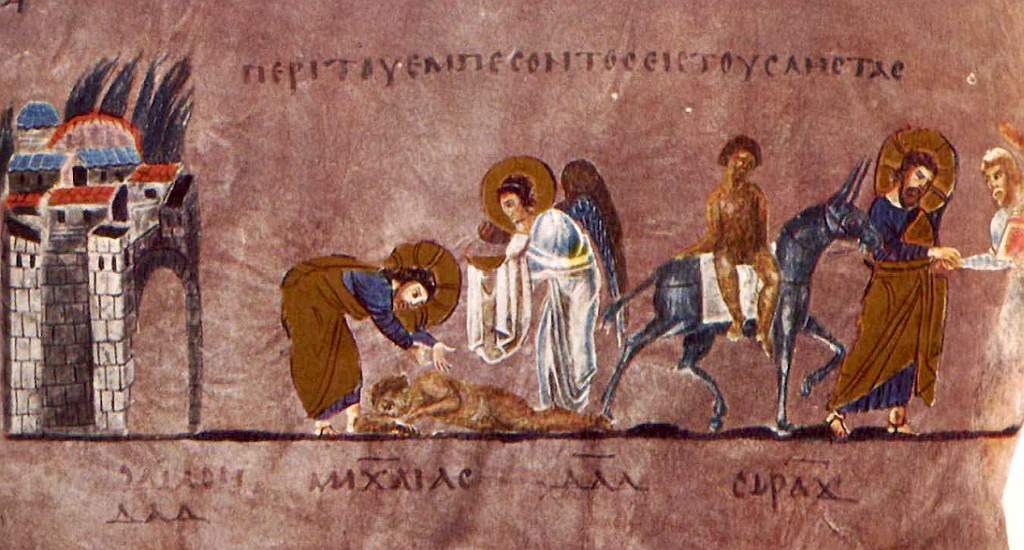
No matter how many exalted words we say about fasting in general and the Great Lent in particular, the truth remains closed to many.
The Lent has begun. It is a time when our aspiration to become better increases, efforts in this direction are doubled, and the result seems a little more achievable than usual. However, it is not uncommon for a person to finish his or her fasting with disappointing results rather than with real change for the better.
There may be many reasons for that, but we’re only going to pay attention to one, which is quite common, I have to say. The reason is that we don’t understand clearly enough what exactly the change for the better should be measured in. One fasts, abstains, and restrains oneself, but in the end one does not know or understand or even think about what all this effort should lead to. Meanwhile, there is a certain characteristic in a person, the presence or, on the contrary, the absence of which clearly demonstrates the worth of his or her fasting efforts and deeds.
This characteristic is kindness, and not the one we are used to: the one that extends only to individuals and to a special range of occasions, and certainly not the fake and pretentious disguise of spiritual squalor. The kind of kindness we need to acquire has to be a permanent state of the soul, the standard lens through which one views reality.
Let us have a look at, so to speak, the main Gospel antagonists of the Sunday readings of the past month: the Pharisee, the elder brother of the prodigal son, and those whom Christ will place to his left at His return. What do they have in common? They’re mean. Not that they’re evil, but they are unkind. They are people who have no place for kindness in their lives, who just don’t need it. Why, for example, would a Pharisee need kindness if he can fast and pay his tithing and honor the Sabbath without it? Why does the elder son need kindness, if he is obedient to his father in everything, reasonable, exigent and hardworking? What does the common man need kindness for? He hasn’t killed, he hasn’t stolen, he worked honestly, he raised children, he didn’t cheat on his wife. Well, he did walk past a needy person, because “nobody gave me anything for free” and anyway, “you gotta work, not beg”.
Can you call such a person evil? Of course you can’t. Unfortunately, there’s no way to call him good either. You shouldn’t be tempted to think that a lack of kindness isn’t reprehensible. As we can see, Christ has a low opinion about the effect of the Pharisee’s prayer, and the father in His parable reproaches the eldest son, albeit gently. Speaking of the Last Judgment, the Savior points directly to the fact that He always takes ill treatment of His neighbor seriously. All this means that an unkind person is a bad Christian.
However, it is not by accident that the subject of the unkind man is raised by the Church before the Lent. Let us repeat: no matter how many enthusiastic words we say about fasting in general and the Great Lent in particular, the truth is that for most of us fasting is, first of all, a time of discovering our own weaknesses. The struggle against passions is not easy. Whenever one overcomes oneself, one acquires important experience, learns about one’s own weakness, imperfection, and natural inclination to sin. One who finds himself by Easter with a broken trough of unfinished rules, unattended services, undelivered alms, unfulfilled promises, and unrepentant sins, as a rule, is even more acutely aware of his own weakness, neglect, confusion, and laziness, thus acquiring the same experience – an experience of knowing his own weakness and imperfection, an experience that teaches him to be gracious, merciful, and forgiving. In other words, fasting is also a school of kindness, among other benefits that we know. Kindness is both the characteristic of fasting and its result, and if anyone is able to become kinder thanks to fasting, then it seems that each of us could aim at becoming at least a little bit kinder in the coming Lent.
Translated by The Catalogue of Good Deeds
Source: https://pravlife.org/ru/content/pravda-o-poste-kak-postitsya-ne-obmanyvaya-sebya



